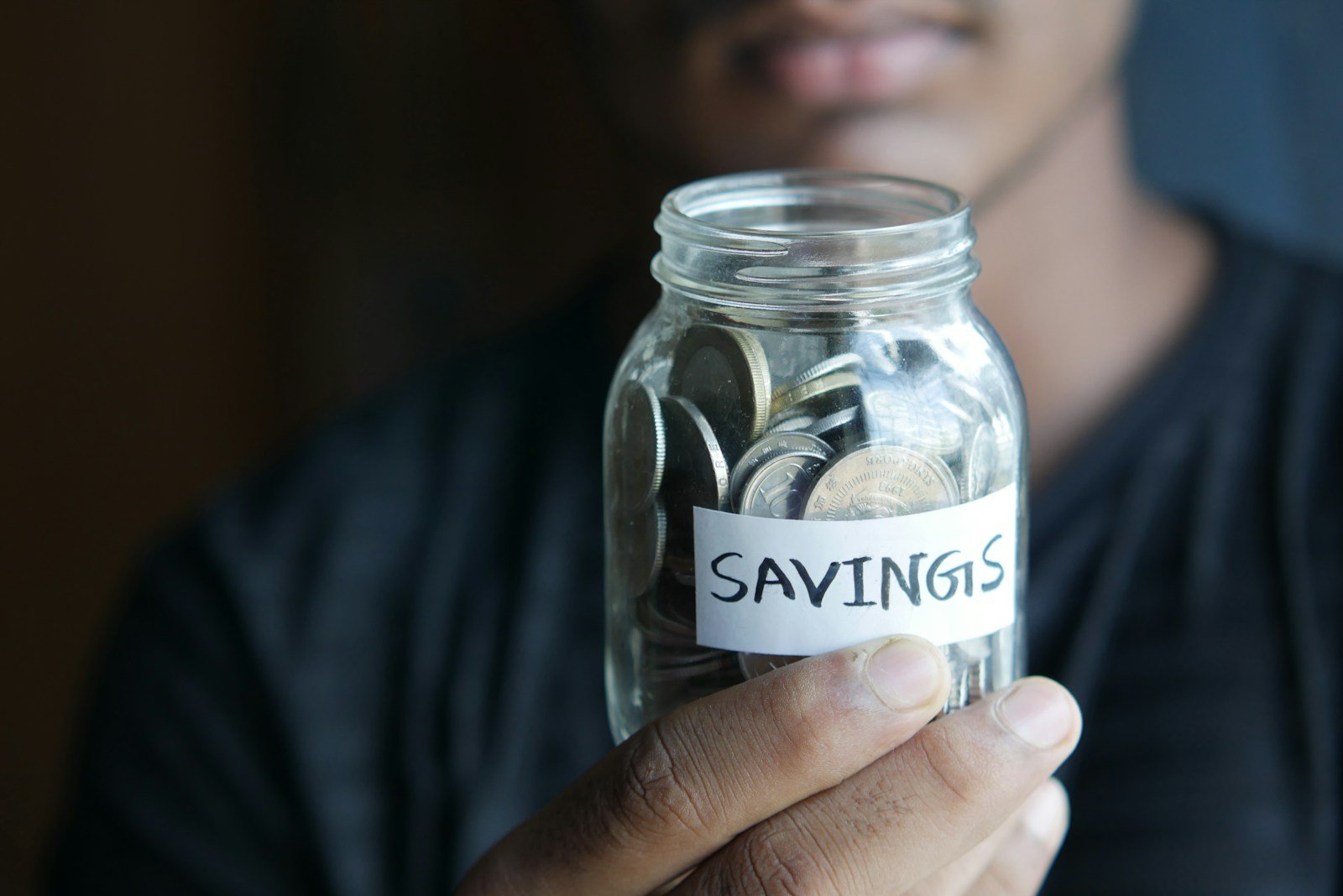Introduction: Why an Emergency Fund is Your Financial Lifesaver
Did you know that nearly 40% of Americans can’t cover a $400 emergency expense? Shocking, right? Life throws curveballs when we least expect it, and an emergency fund is that cushion you’ll be so grateful for when things get tough. Imagine needing urgent car repairs, an unexpected medical bill, or losing your job out of the blue. A financial buffer allows you to handle life’s surprises without digging into high-interest credit cards or scrambling to borrow.
This guide will walk you through the essentials of emergency funds. We’ll cover how much you need, strategies for building your fund even on a tight budget, and some clever hacks to reach your goal faster. Ready to stress less and save more? Let’s dive in!
Why Do You Need an Emergency Fund?
Creating an emergency fund is like giving yourself a gift: it’s peace of mind, wrapped up in financial security. Imagine the freedom of knowing you have a backup for life’s “uh-oh” moments. Trust me, I’ve seen friends and family members use emergency funds to avoid high-interest debt, dodge borrowing from loved ones, and spare themselves from financial stress.
Protection from Debt Traps
If you’ve ever had to slap a hefty car repair on a credit card, you know how quickly things can spiral out of control. Emergencies can lead to a cycle of debt if you’re forced to rely on high-interest options. An emergency fund can be a lifesaver, helping you handle unexpected expenses without the headache of compounding interest charges.
Peace of Mind and Financial Stability
The calm that comes with having a financial safety net can’t be overstated. It’s like knowing you have a warm coat during a surprise snowstorm; you’re prepared and protected. An emergency fund offers emotional stability, too, reducing that constant undercurrent of financial worry.
Real-Life Applications
Here’s a quick example. My friend Lisa once had her car break down right before an important job interview. Thanks to her emergency fund, she was able to pay for the repairs and get her car back on the road without skipping a beat. That small fund protected her career—and her peace of mind!
How Much Should You Save in an Emergency Fund?
So, how much is enough? Experts suggest saving at least three to six months of essential living expenses. Think rent, groceries, utilities—things you couldn’t live without if your income stopped suddenly.
Determining Essential Expenses
Start by calculating the must-haves, which might include:
- Rent/Mortgage: $X
- Utilities: $X
- Groceries: $X
- Healthcare Costs: $X
- Transportation: $X
Here’s a sample table to help you visualize:
| Expense Category | Monthly Cost |
|---|---|
| Rent/Mortgage | $1,200 |
| Utilities | $200 |
| Groceries | $300 |
| Healthcare | $150 |
| Transportation | $100 |
| Total | $1,950 |
Multiply your total monthly expenses by three to six, depending on your circumstances. For instance, if your monthly essentials cost $1,950, your emergency fund goal would range between $5,850 (three months) and $11,700 (six months).
Personalization is Key
Are you single with a stable job? Three months might be enough. But if you have dependents or work freelance, consider saving six to 12 months of expenses for extra security. Your emergency fund should suit your lifestyle and financial situation.
How to Start Building Your Emergency Fund (Even on a Tight Budget)
If the idea of saving thousands sounds daunting, remember this: you don’t need to do it all at once. Small, steady contributions add up over time. Here’s a blueprint to start saving, even if you’re on a shoestring budget.
Set a Small Initial Goal
Don’t aim for the stars right away. Start with a manageable goal, like $500. Once you hit that, aim for $1,000. Small wins build momentum and motivate you to keep going.
Identify Everyday Saving Opportunities
Take a hard look at your spending habits. Here are a few ideas:
- Reduce Takeout: Try cooking more at home.
- Cancel Unused Subscriptions: Got an old gym membership or streaming service you barely use? Cancel it!
- Round-Up Savings Apps: Apps like Acorns automatically round up your purchases and deposit the difference in your savings. It’s effortless and surprisingly effective.
Automate Savings
Set up an automatic transfer from your checking account to a separate savings account each payday. Even $10 or $20 a week can make a difference over time. By automating your savings, you “pay yourself first” before any other expenses.
Track Your Progress and Celebrate Milestones
Building an emergency fund takes time, so tracking your progress is essential. Celebrate when you hit each small goal; it keeps you motivated to keep going.
Where Should You Keep Your Emergency Fund?
Choosing the right place to stash your emergency fund is just as important as saving it. You want your money to be safe and easily accessible.
High-Yield Savings Accounts
These are the go-to option for most people. They offer higher interest rates than regular savings accounts, helping your money grow while still being easily accessible. Just make sure to choose an FDIC-insured account to protect your funds.
Money Market Accounts
Another solid option, money market accounts often come with slightly higher interest rates than standard savings. They’re safe, accessible, and can sometimes offer check-writing privileges for added flexibility.
Avoid Investment Accounts for Emergency Funds
While investing is a great way to grow wealth, the stock market is too volatile for an emergency fund. The last thing you want is to need cash during a market dip.
| Account Type | Pros | Cons |
|---|---|---|
| High-Yield Savings Account | Safe, higher interest | Lower returns compared to stocks |
| Money Market Account | Safe, check-writing privileges | Potential minimum balance |
| Investment Accounts | High return potential (not recommended) | High risk, not easily accessible |
Frequently Asked Questions (FAQs)
“How much should I save if I have irregular income?”
If your income is unpredictable, aim for a larger emergency fund—anywhere from six to 12 months of expenses. This gives you a financial cushion to cover periods when income may be lower than usual.
“Is an emergency fund necessary if I have credit cards?”
Yes! While credit cards can cover emergency expenses, they come with high-interest rates. Relying on them can quickly lead to debt, making an emergency fund a safer, more affordable alternative.
“Can I use part of my retirement savings as an emergency fund?”
It’s generally best to avoid this. Early withdrawals from retirement accounts often come with hefty penalties and taxes. Stick to a dedicated emergency fund instead.
“Should I pause retirement contributions to build an emergency fund?”
If you don’t have any emergency savings, pausing retirement contributions for a short time can help. But try to balance both goals once you’ve saved a small emergency fund.
Common Mistakes to Avoid When Building an Emergency Fund
Building an emergency fund is rewarding, but it’s easy to slip up if you’re not careful.
Using the Fund for Non-Emergencies
It’s tempting to dip into your emergency fund for a weekend getaway or a great sale. Don’t! Remember, this money is for emergencies only—think medical bills, not concert tickets.
Not Replenishing the Fund
Once you use your emergency fund, prioritize rebuilding it. Life is unpredictable, so it’s essential to keep this buffer intact.
Over-Saving and Missing Investment Opportunities
Yes, an emergency fund is crucial, but don’t let too much cash sit idle. Once you have enough saved, consider redirecting additional savings toward other financial goals, like retirement or investing.
Tips to Help You Reach Your Emergency Fund Goal Faster
Here are some extra tips to accelerate your savings:
- Side Gigs and Freelance Work: Apps like Upwork or Fiverr offer opportunities for side income.
- Sell Unused Items: That old bike or unused gadget gathering dust? Sell it!
- Look for Hidden Savings: Review your bills to identify unnecessary expenses.
Conclusion: Your Future Self Will Thank You
Having an emergency fund is one of the best gifts you can give yourself. Not only does it provide financial security, but it also brings priceless peace of mind. Start small, be consistent, and watch your savings grow. Your future self will thank you for it!
Call to Action:
What’s your best tip for building an emergency fund? Drop your thoughts in the comments, and let’s help each other save smarter!




